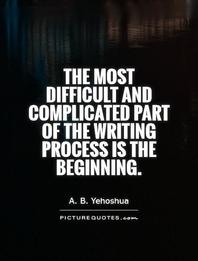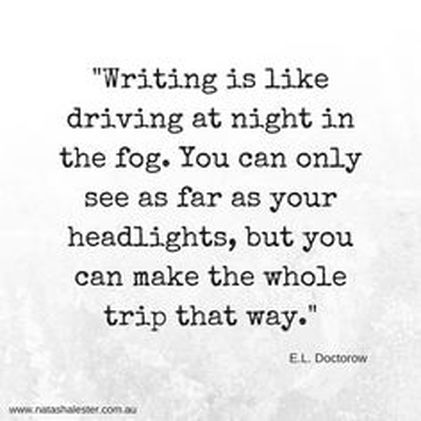Do you need an outline?

So, you’ve decided to start your book. You’ve been reading a lot, and you think if write how you talk it can’t be too hard to start. Then you face the blank page. What now?
Well, you have a couple of options. You could begin writing, right now, or you could start with an outline.
This is a question writers always argue over. What works for one person won't work for everyone. So no, I can't give you a yes or no answer to the outline question. I can only give you three questions to ask yourself.
Well, you have a couple of options. You could begin writing, right now, or you could start with an outline.
This is a question writers always argue over. What works for one person won't work for everyone. So no, I can't give you a yes or no answer to the outline question. I can only give you three questions to ask yourself.
1. How complicated is your story?
A short story with a basic timeline and only a few characters probably won't require much outlining. The more complicated things are, the more useful and outline will be.
2. Is your story subject to change?
Outlining gives you a plan to follow. If you keep changing it, you'll have to re-work your outline as well as your story. However, having the outline will probably make those changes easier to keep track of. Which brings me to our final question:
3. How much time do you want to spend on this project?
The world of “The Mansion’s Twins” was not going to be part of any story at first, it was just an imaginary place for me to play when I was younger. It was all meant to be for fun, so I got to know a lot of places, and a lot of characters, before I even started an outline. And I did that FOR YEARS. Maybe you don’t want writing a book to take years.
If you outline more, and stick to your outline, writing your book will be a much faster process. If you want to spend the time playing in your story world, and falling in love with it, you’ll take more time, but possibly have more fun.
If you outline more, and stick to your outline, writing your book will be a much faster process. If you want to spend the time playing in your story world, and falling in love with it, you’ll take more time, but possibly have more fun.
Personally, I consider myself a “light outliner.” I do like to have a plan, but it’s always a flexible plan. This method does take longer than making a detailed outline from the start, and sticking to it the whole way through, but I like it because it gives the story more opportunity to grow. Sometimes, I’ll think of a better direction to take the story in, and end up scrapping my old outline.
Always write when you feel the inspiration to. Don't force yourself to sit down and write an outline when you have a scene in your head. And if a story you're writing turns out more complicated than originally planned, you can always pause to make an outline anywhere in the writing process.
Trust your instincts, and remember your two golden rules. Read, read, read, and write, write, write!
Always write when you feel the inspiration to. Don't force yourself to sit down and write an outline when you have a scene in your head. And if a story you're writing turns out more complicated than originally planned, you can always pause to make an outline anywhere in the writing process.
Trust your instincts, and remember your two golden rules. Read, read, read, and write, write, write!

 RSS Feed
RSS Feed
